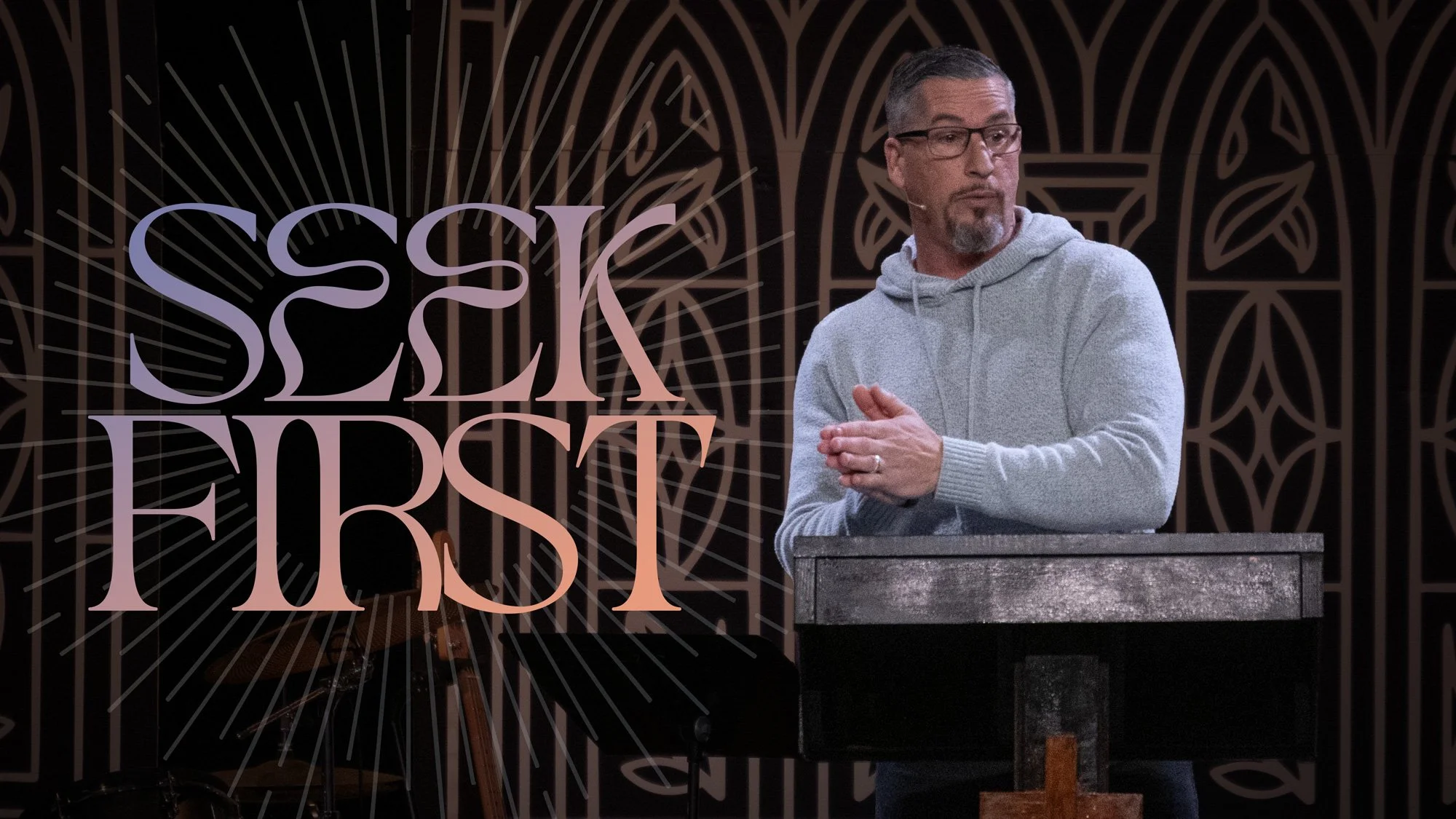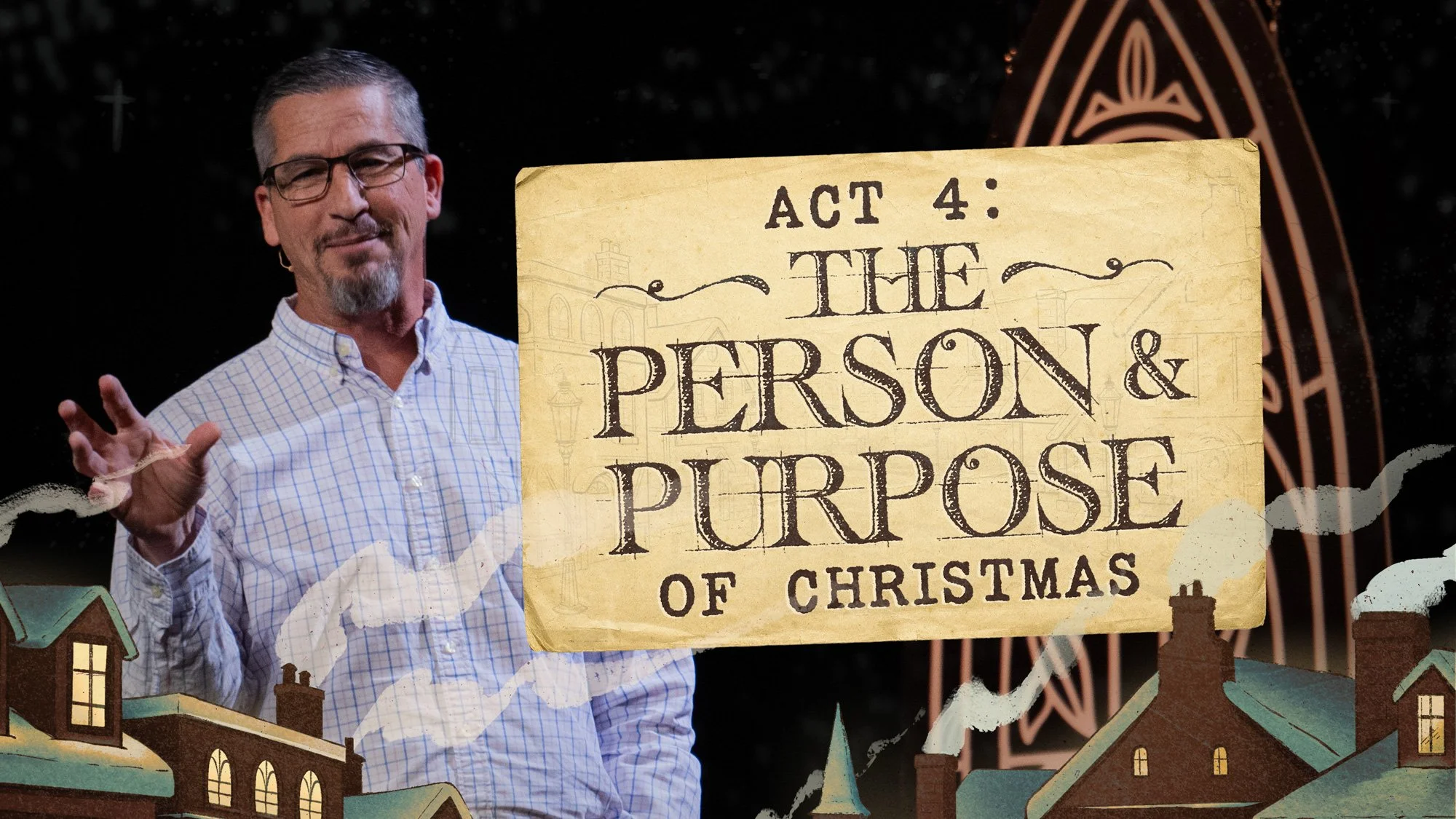For Such A Time As This
Listen to the Podcast
Listen on another podcasting platform.
For Such A Time As This Sermon
RC Ford [Stewarts Creek Campus Pastor]
Sermon Points & Scripture References:
• Sermon Takeaway = For Such A Time As This
• Scripture Reference: Esther 1:1-22
• Sermon Point: God uses the plans of the wicked as pawns for His will.
• Scripture Reference: Proverbs 16:9
• Sermon Point: God’s people live for the glory of God not the greatness of the world.
• Scripture Reference: Hebrews 13:14
• Sermon Point: Jesus is the better king.
Sermon Discussion Questions
Get to know me
The purpose of these questions is to generate responses that are self-revealing and informative. Feel free to ask all of these questions to your group or simply choose the one that best fits your group.
How do you understand God's will in your life? How has your understanding of God's will evolved over time?
Can you share a personal experience where you felt you were following God's will? How did it impact your life positively?
Have you ever experienced challenges or struggles when trying to discern or follow God's will? What did you learn from that experience?
Into the Bible
The purpose of these questions is to draw group members into the Bible to discover the truth from passages that were not the primary text for the weekend message.
Read Philippians 2:12-13. The Apostle Paul is addressing the Philippian believers, encouraging them to live out their faith with diligence and sincerity. He commends them for their obedience, both when he was present with them and now in his absence. Paul then urges them to continue working out their salvation with "fear and trembling," which suggests a reverent awe and seriousness in their commitment to following Christ. How does the recognition of God's work within us to fulfill His good purpose inspire us to trust in His guidance and provision in our lives? How does the idea of "fear and trembling" in this passage contrast with a fear of punishment or condemnation? How can we cultivate a healthy reverence for God in our lives?
Read Proverbs 19:21. Proverbs 19:21 highlights the sovereignty of God over human plans and purposes. It reminds us as believers to trust in God's ultimate purposes even when our own plans may fail or be frustrated. How can we find peace and contentment in knowing that God's purposes are ultimately for our good, even when we may not fully understand or see the outcome of His plans in the present moment? In what ways can we align our plans and desires with God's purposes, seeking His guidance and wisdom in all our decisions and endeavors?
Application
The purpose of these questions is to apply the main points from the weekend message.
Read Esther 1:1-9. After highlighting the extent of his power, the writer is careful to point out the expanse of King Ahasuerus’ possessions. From the curtains hanging in the courtyard to his cups filled with wine — Ahasuerus flexed his wealth for all to see. The author even said the couches were golden and the patio was made of rare stones and fine jewels. You see, the king’s wealth wasn’t simply what he had – it’s who he was. His identity was formed by his possessions, abundance, and greatness. How might the themes of wealth, power, and identity in this passage relate to our own lives and cultures? How might our understanding of identity and worth be shaped by our relationship with God, rather than by external factors such as wealth and status?
Read Esther 1:10-12. The drunken king sent his eunuchs to get his queen. Queen Vashti was beautiful. In fact, her name means “the desired one” and the passage says “she was lovely to look at”. In his mind he thought — If they liked my wine, wait till they see my woman! His queen wasn’t the apple of his eye — she was an asset. She wasn’t a person with a soul — he saw her as property with curves. His queen, like the rest of the kingdom, was to serve his interests and a means to his end. How does King Ahasuerus's command to bring Queen Vashti before him reflect his attitude towards her as a person? In what ways can we emulate Jesus's example of valuing and respecting the dignity and worth of every person, regardless of their status or position?
Read Esther 1:13-22.The counsel he received from those closest to him was to take the crown from Queen Vashti. According to the wise men, the queen had usurped his authority and therefore didn’t only commit treason against the king, but was a threat to society. The king took their advice and wrote an irrevocable edict into Persian law that Vashti should be removed as queen and that all women in the kingdom should give honor to their husbands. How might the wise men's counsel to King Ahasuerus be influenced by their own interests, particularly in maintaining their positions of authority? In what ways does Jesus's example of humility and servant leadership challenge the power of King Ahasuerus? How do we do life with one another, whether in marriage or friendships, in proper submission as followers of Jesus without compulsion?




















